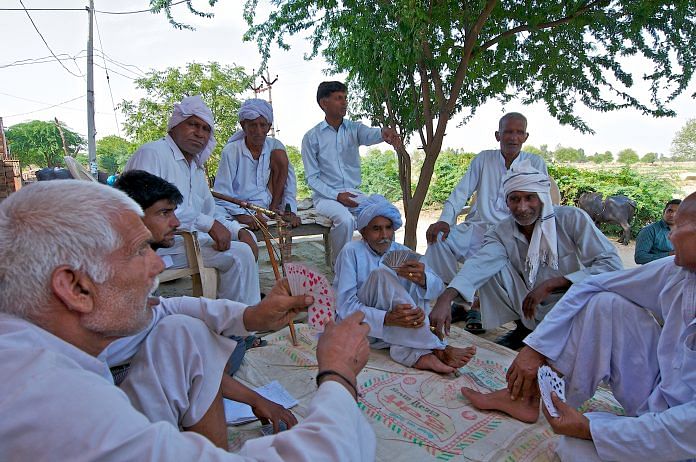Khaps gained prominence as a tribal and village administration mechanism, and are most prevalent in the states of Maharashtra, Rajasthan, MP, UP, and Haryana.
New Delhi: The Supreme Court Tuesday declared that any attempt by a khap panchayat to end marriages between consenting adults was illegal.
Saying that honour killings put the rule of law in a “catastrophic crisis”, a bench of Chief Justice Dipak Misra, Justice A.M. Khanwilkar and Justice D.Y Chandrachud also laid down preventive, remedial and punitive measures in order to rein in the unchecked power of the khaps.
The judgment has been hailed as a progressive one. But what exactly is a khap panchayat and what is its source of power over the masses?
What is a khap panchayat?
Traditionally, a khap panchayat is formed by the elders of a caste or community group and consists of a unit of 84 villages, though khaps of 24 and 12 villages exist as well.
Khaps gained prominence as a tribal and village administration mechanism, and are most prevalent in the states of Maharashtra, Rajasthan, Madhya Pradesh, Uttar Pradesh, and Haryana.
These kangaroo courts are not officially sanctioned by the democratically-elected local assembly or the panchayat. They act primarily as quasi-judicial bodies, often pronouncing harsh and regressive diktats on villagers, based on age-old customs and traditions.
They have acquired an infamous reputation for their notorious attacks and vicious conduct on individuals they regard as errant or deviating from social values, taking many lives in the process.
Khaps, which justify their actions in the name of honour and brotherhood, have been able to retain their position of power in rural India in part because of the inherent weakness of the democratically-elected panchayats.
In most cases, even local police and political parties have turned a blind eye to the terrible acts of khaps, which over the years has emboldened them further.
Their most controversial diktats
Khaps frequently makes regressive pronouncements on social issues like marriage, abortion and dowry, among other things. Former home minister P. Chidambaram and social activist Ranjana Kumari have likened them to the Taliban.
Here are four of khaps’ most controversial diktats:
Manoj-Babli honour killing: The infamous case from 2007 was a landmark, as it was the first time a khap was convicted by the court for an honour killing.
Based on the assumption that Manoj and his wife Babli belonged to the same gotra (clan), the khap said that they were siblings despite not being directly related. Hence, they declared any union between the two to be incestuous and invalid and ordered for them to be killed.
Stripping and beating: A couple in the Kolar village of Udaipur, Rajasthan, were brutally punished by the khap for having an extra-marital affair and then eloping.
After a dictum by the khap, the villagers caught the couple and tied them to a tree. They then stripped the woman in full view of the village and cut off all her hair, all the while relentlessly beating the couple.
Banned cell phones: Another khap panchayat in UP gave a dictum in 2012 saying that women under 40 years of age must not use cell phones. It also banned all love marriages and banned women from venturing outside their house with men.
Revenge rape: In 2015, a khap in Meerut issued a diktat to its villagers to rape two Dalit sisters and parade them naked around the village.
They faced this barbaric punishment after their brother had married a Jat woman from the community and eloped with her.
Good khap, bad khap
While these kangaroo courts are looked at primarily with fear and disdain because of their tyrannical practices, there are also a few good khaps that have seen the value of reforming themselves. But these are few and far between.
One such khap in western UP decided to launch a campaign against female foeticide in 2015, after facing widespread criticism for its regressive social diktats.
The khap announced a cash reward of Rs 2,100 for families with three daughters.
Another khap, in 2014, allowed inter-caste marriages, as long as they were not within the same gotra, village or neighbouring village.



